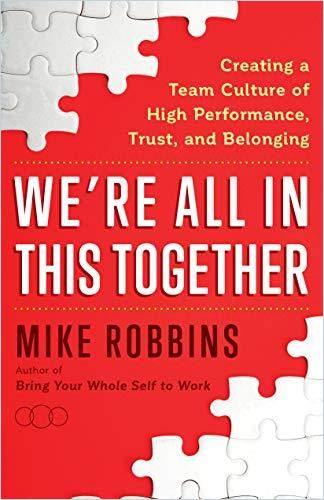Former professional athlete and self-help author Mike Robbins explains how lessons from sports teams can help business teams be more productive.

Sports Teams and Business Teams
Mike Robbins, a former baseball pitcher for Stanford University and the Kansas City Royals minor league team, makes the case that effective teamwork is the backbone of successful business operations. He cautions that teamwork doesn’t come easily, especially in times of relentless change.
When teams work properly, Robbins attests, they leverage their members’ collective capabilities for the good of the overall organization. As a consultant and frequent keynote speaker, he details how companies can profit from the extraordinary impact of a great team and create a team-friendly corporate culture, the primary requirement for high-quality teams. While his contentions may not be entirely original, they are pertinent and useful.
Team Chemistry
In 1985, 11-year-old Mike Robbins was the unofficial captain of his Little League baseball team. He reports telling his teammates that bickering would not help them. Another player urged the team members to try their hardest. This became the team’s rallying cry.
This team’s success was Robbins’s first experience of the power of a small, cohesive group. He attributes its great results to its members’ mutual support.
Who is on a team matters a bit less than how the team members interact, structure their work and view their contributions.Mike Robbins
When Robbins was pitching at Stanford, the New York Yankees drafted him, but he decided to continue his education and play for the university’s baseball team. He never played on a major league team, but he pitched in the Kansas City Royals’ minor league professional baseball system, where, to his surprise, his mediocre team often defeated teams of superstars. He credited their improbable success to team chemistry.
After injuring his pitching arm, Robbins went to work in advertising sales for a San Francisco technology company and, in 2000, became a consultant focused on team building and performance. He maintains – in a sentiment shared by many former athletes who advise companies – that team chemistry matters in business or any other organized group of people as much as it does in sports. In his experience, “the teams with good chemistry played much better than the ones without it.”
Dynamics Equal Culture
Team chemistry, Robbins explains, brings people together to work toward common goals. In business, he notes, the name for this crucial dynamic is corporate culture: how teammates feel about their teams, their position on their teams, how teammates get along and what their attitudes are about team activities.
A diverse mix of voices leads to better discussions, decisions and outcomes for everyone.Google CEO Sundar Pichai
Robbins makes the obvious point that companies with smoothly functioning teams outperform companies whose teams don’t work well together – even if the dysfunctional teams have more talented members.
Obstacles
Robbins warns of some specific obstacles that impede teamwork, including that people think first as individuals and not as teammates; that society pits people against one another; that workplaces get swamped in process and ignore emotion; and that people tend to be selfish.
By contrast, he notes that successful teams – those known for superior performance, engagement, productive team collaboration and a trustworthy, supportive corporate culture – depend on a different set of factors. Their teammates feel psychologically safe expressing themselves; they disagree cordially; their teams are inclusive and diverse; teammates address conflicts or issues directly; and they care about and challenge one another.
Teammates should focus on what works best for “us.”
Robbins makes the not-obvious point that true teammates seldom generate mental us-versus-them scenarios. Instead, astute teammates and thoughtful employees think in terms of the organization’s good; they think about “us.”
A championship team doesn’t necessarily always win, but they play the game the right way, with passion, and with a commitment to one another as well as to the ultimate result.Mike Robbins
Robbins believes people want to join together. This dynamic, he says, stems from the fundamental human recognition that people belong with people and have a genuine need for each other.
Well-Worn Ground
Robbins puts out a lot of books; he’s a self-help author in the cheerleading mode and doesn’t generally explore many of his ideas super deeply. This slightly superficial manual is clearly aimed at readers without a lot of time who receive messages more efficiently when they’re pitched as memorable slogans. Robbins touts his experience as a former pro ballplayer, but rarely transcends the well-worn ground of using sports metaphors to describe business environments. He makes quite worthwhile, if familiar, points as he helpfully brings the ethos of team sports into the business arena and presents a useful model for teams to follow.
Mike Robbins’s other books include Focus on the Good Stuff; Be Yourself, Everyone Else Is Already Taken; Bring Your Whole Self to Work; and Nothing Changes Until You Do.














